
Czestochowa: Poland's Spiritual Heartbeat
Czestochowa is a city that resonates with spiritual significance and historical depth. Nestled in the southern part of Poland, it is most renowned for the Jasna Góra Monastery, home to the revered Black Madonna icon. This landmark draws millions of pilgrims each year, making it a pivotal site for religious tourism. The monastery's rich history and architectural grandeur offer a profound experience for those seeking spiritual solace or simply an appreciation of cultural heritage. Beyond its religious allure, Czestochowa boasts a vibrant blend of modernity and tradition. The city's center is dotted with charming cafes, local eateries, and shops selling unique Polish crafts. A stroll down Aleja Najświętszej Maryi Panny, the main avenue, reveals beautifully preserved buildings and an array of monuments that tell the tale of the city's storied past. Czestochowa's dynamic cultural scene is showcased through its various museums, theaters, and annual festivals, providing tourists with a well-rounded and enriching visit. Nature enthusiasts will find Czestochowa equally appealing. The city is surrounded by picturesque landscapes, including the verdant hills of the Kraków-Częstochowa Upland. Outdoor activities like hiking, cycling, and exploring limestone caves offer a refreshing escape from urban life. The city's parks and green spaces provide tranquil spots for relaxation and leisure, perfectly complementing the spiritual and cultural experiences that Czestochowa offers.
Local tips in Czestochowa
- Visit Jasna Góra Monastery early in the morning to avoid the crowds and have a more peaceful experience.
- Try the local cuisine at one of the traditional Polish restaurants in the city center.
- Take a walk down Aleja Najświętszej Maryi Panny to see the main attractions and enjoy the vibrant atmosphere.
- Explore the surrounding Kraków-Częstochowa Upland for outdoor adventures like hiking and cycling.
- Check the local event calendar for festivals and cultural events during your visit.
Czestochowa: Poland's Spiritual Heartbeat
Czestochowa is a city that resonates with spiritual significance and historical depth. Nestled in the southern part of Poland, it is most renowned for the Jasna Góra Monastery, home to the revered Black Madonna icon. This landmark draws millions of pilgrims each year, making it a pivotal site for religious tourism. The monastery's rich history and architectural grandeur offer a profound experience for those seeking spiritual solace or simply an appreciation of cultural heritage. Beyond its religious allure, Czestochowa boasts a vibrant blend of modernity and tradition. The city's center is dotted with charming cafes, local eateries, and shops selling unique Polish crafts. A stroll down Aleja Najświętszej Maryi Panny, the main avenue, reveals beautifully preserved buildings and an array of monuments that tell the tale of the city's storied past. Czestochowa's dynamic cultural scene is showcased through its various museums, theaters, and annual festivals, providing tourists with a well-rounded and enriching visit. Nature enthusiasts will find Czestochowa equally appealing. The city is surrounded by picturesque landscapes, including the verdant hills of the Kraków-Częstochowa Upland. Outdoor activities like hiking, cycling, and exploring limestone caves offer a refreshing escape from urban life. The city's parks and green spaces provide tranquil spots for relaxation and leisure, perfectly complementing the spiritual and cultural experiences that Czestochowa offers.
When is the best time to go to Czestochowa?
Iconic landmarks you can’t miss
Jasna Góra
Experience the spiritual essence of Poland at Jasna Góra Monastery, home to the revered Black Madonna and a treasure of history and architecture.
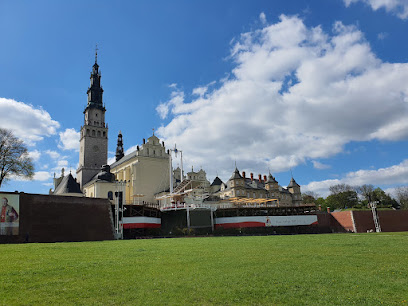
Castle in Olsztyn
Explore Olsztyn Castle: A breathtaking medieval fortress with stunning views and rich history, perfect for nature lovers and history enthusiasts alike.
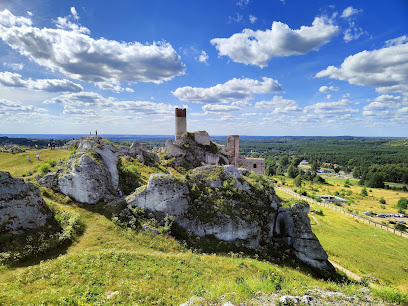
Park im. Staszica w Częstochowie
Explore the natural beauty and tranquility of Park im. Staszica in Częstochowa, a perfect escape for nature lovers and families.
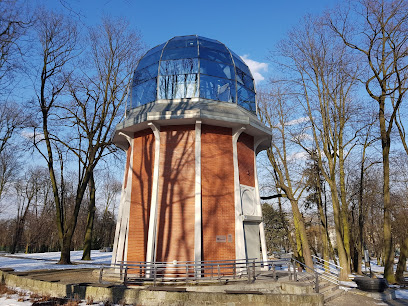
Park im. Stanisława Staszica w Częstochowie
Discover the enchanting Park im. Stanisława Staszica, a lush green haven in Częstochowa, perfect for relaxation, recreation, and cultural exploration.
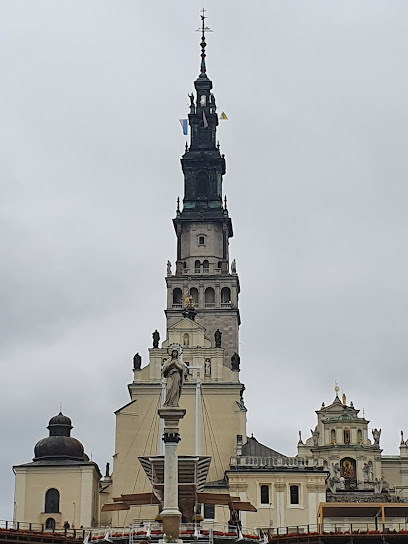
Museum of the Production of Matches
Discover the intriguing history of match production at Częstochowa's Museum of the Production of Matches, a unique technology museum that captivates and educates.
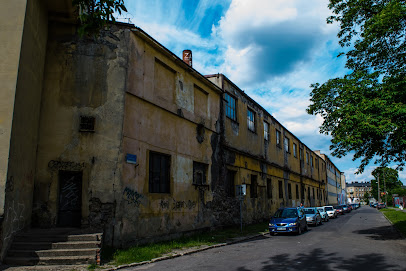
Muzeum Częstochowskie - Ratusz Miejski
Explore the treasures of Częstochowa at Muzeum Częstochowskie - Ratusz Miejski, a cultural gem offering insights into local history, art, and heritage.
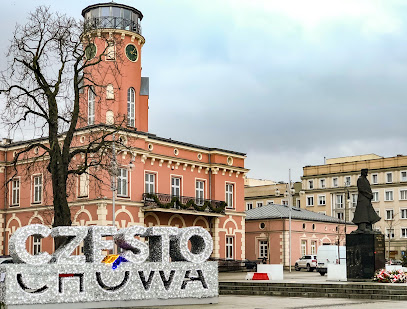
Miejska Galeria Sztuki
Explore Miejska Galeria Sztuki in Czestochowa, a vibrant art gallery featuring contemporary works and cultural events that showcase local and international talent.
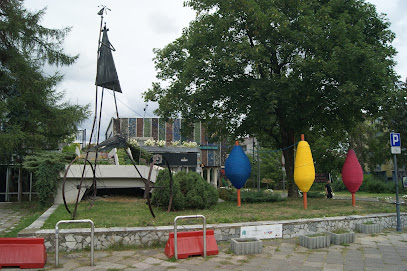
Kamieniołomy na Złotej Górze
Explore the breathtaking landscapes and rich history of Kamieniołomy na Złotej Górze, a hidden gem in Czestochowa, Poland.
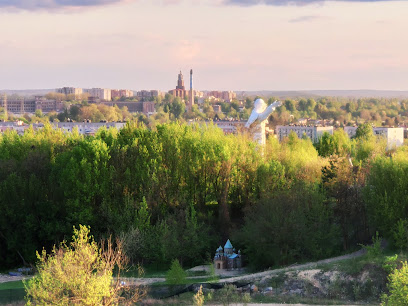
Galeria Dobrej Sztuki - Muzeum Częstochowskie
Explore the rich cultural heritage and artistic brilliance of Poland at Galeria Dobrej Sztuki - Muzeum Częstochowskie, a must-visit destination for art lovers.
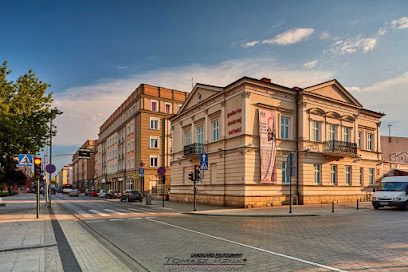
Muzeum Górnictwa Rud Żelaza w Częstochowie - Muzeum Częstochowskie
Explore the fascinating history of iron mining at Muzeum Górnictwa Rud Żelaza in Częstochowa - a must-visit for history enthusiasts.
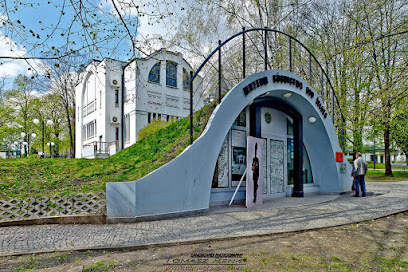
Skała Balika
Explore the stunning natural beauty and rich history of Skała Balika, a must-visit attraction in the heart of Czestochowa, Poland.
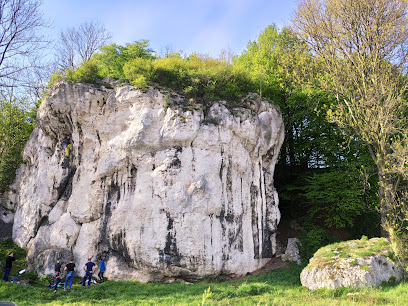
Railway History Museum in Czestochowa
Delve into the rich legacy of Polish rail transport at the Railway History Museum in Czestochowa, where history and technology come together.
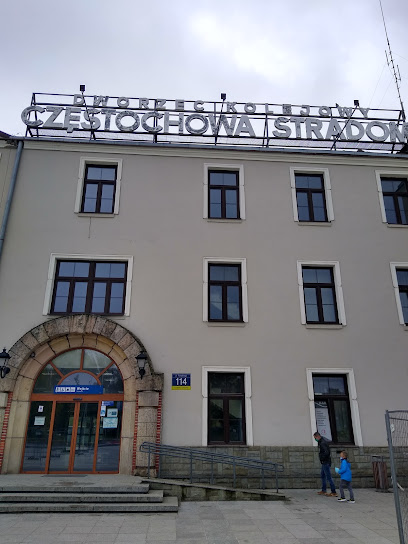
Złota góra
Discover the stunning views and serene trails of Złota Góra, a breathtaking mountain peak in Czestochowa, perfect for hikers and nature lovers.
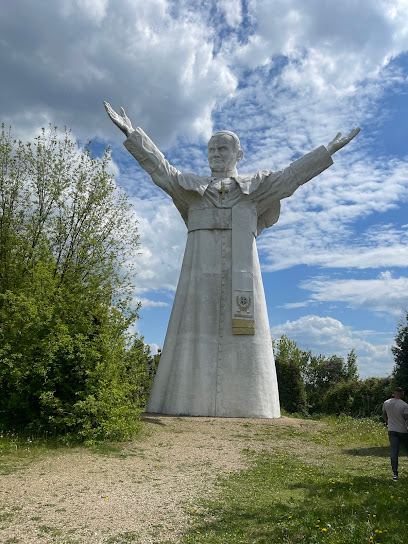
Kule Cemetery in Częstochowa
Explore Kule Cemetery in Czestochowa, a serene and historical site that reflects Poland's rich cultural heritage through its beautiful gravestones and tranquil landscape.
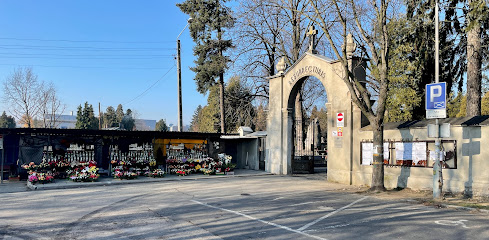
Skarbiec
Explore the rich history and cultural treasures of Skarbiec, a must-visit museum in Częstochowa that showcases Poland's religious heritage.
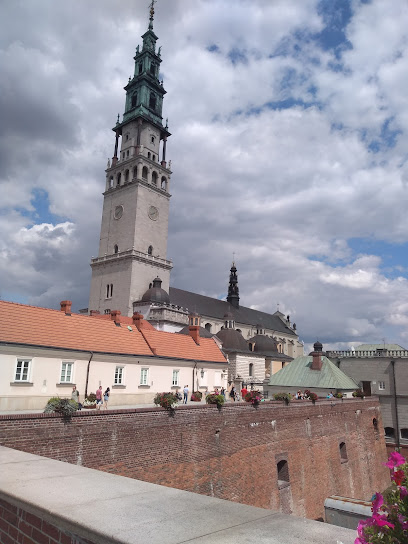
Unmissable attractions to see
Jasna Góra
Experience the spiritual and historical significance of Jasna Góra, home to the Black Madonna, in the heart of Czestochowa, Poland.
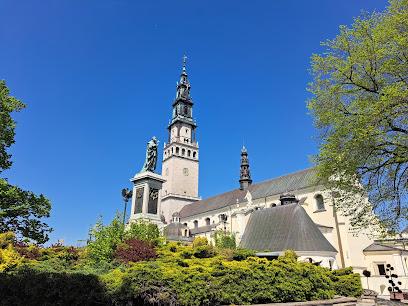
Castle in Olsztyn
Explore the enchanting Olsztyn Castle, a historical gem surrounded by stunning nature, rich culture, and breathtaking views in Poland.
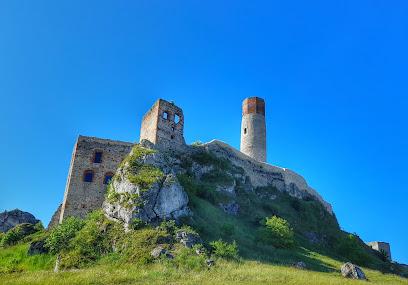
Royal Castle Bobolice
Experience the majestic Royal Castle Bobolice, a stunning historical site surrounded by scenic hiking trails in Poland.
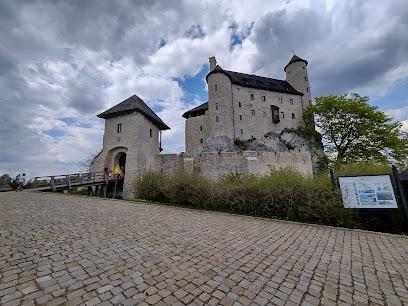
Mirow Castle - ruins
Discover the enchanting ruins of Mirow Castle, a historical gem in Poland that captivates visitors with its scenic beauty and rich heritage.
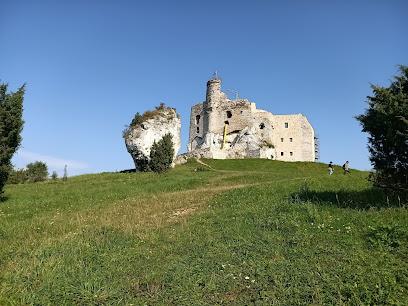
Park im. Stanisława Staszica w Częstochowie
Experience the lush landscapes and serene ambiance of Park im. Stanisława Staszica in Częstochowa, a perfect retreat for relaxation and exploration.
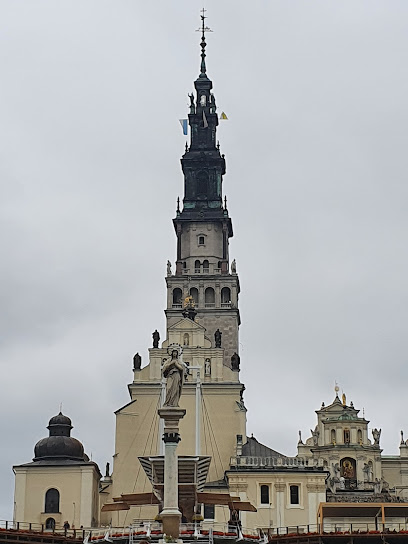
Museum of the Production of Matches
Explore the unique history and technology of match production at the Museum of the Production of Matches in Czestochowa.
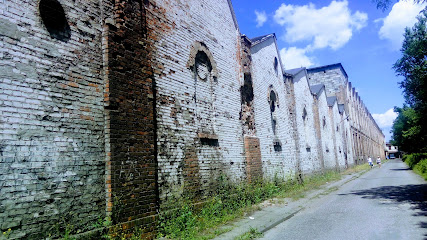
Wieża Babel
Explore Wieża Babel in Czestochowa, a stunning architectural marvel that blends history and beauty, perfect for tourists seeking culture and breathtaking views.
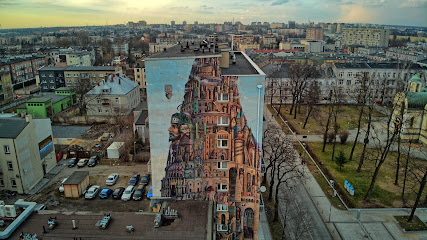
Aleja Brzozowa
Discover the natural charm of Aleja Brzozowa, a stunning hiking area in Czestochowa, Poland, perfect for outdoor enthusiasts and nature lovers.
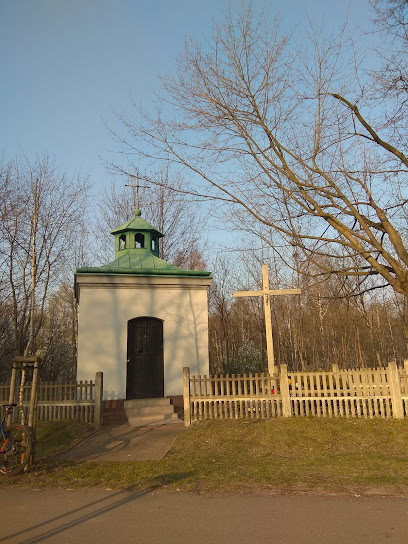
Miejska Galeria Sztuki
Explore Miejska Galeria Sztuki in Czestochowa, a vibrant art gallery showcasing contemporary and classic art from local and international artists.
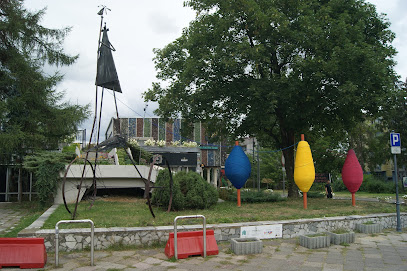
Kamieniołomy na Złotej Górze
Discover the stunning rock formations and rich history of Kamieniołomy na Złotej Górze, a picturesque tourist attraction in Czestochowa, Poland.
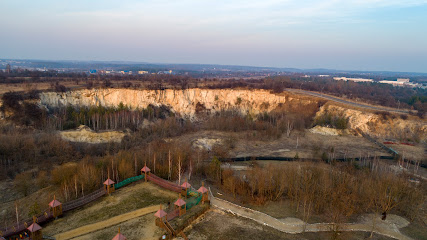
Lasek Aniołowski w Częstochowie
Experience the serene beauty of Lasek Aniołowski in Częstochowa, a lush city park perfect for relaxation, family fun, and outdoor activities.
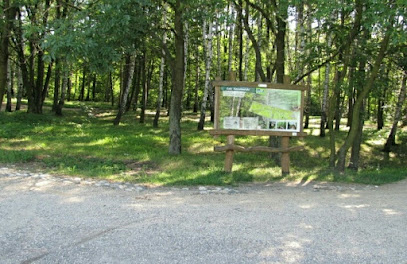
Galeria Dobrej Sztuki - Muzeum Częstochowskie
Immerse yourself in the artistic spirit of Poland at Galeria Dobrej Sztuki - Muzeum Częstochowskie, where art and culture come alive.
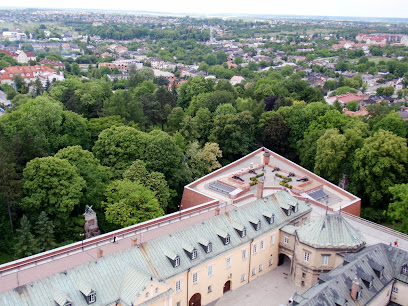
Muzeum Górnictwa Rud Żelaza w Częstochowie - Muzeum Częstochowskie
Discover the fascinating history of iron mining at Częstochowa's Iron Ore Mining Museum, where past and present collide in an educational experience.
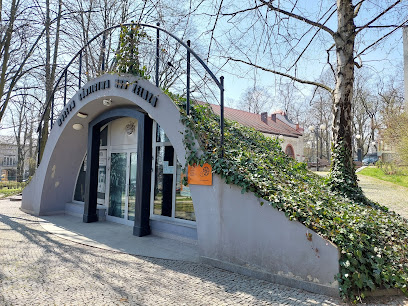
Tężnia Solankowa
Discover the healing powers of Tężnia Solankowa in Częstochowa, a serene retreat for relaxation and wellness amid beautiful natural landscapes.
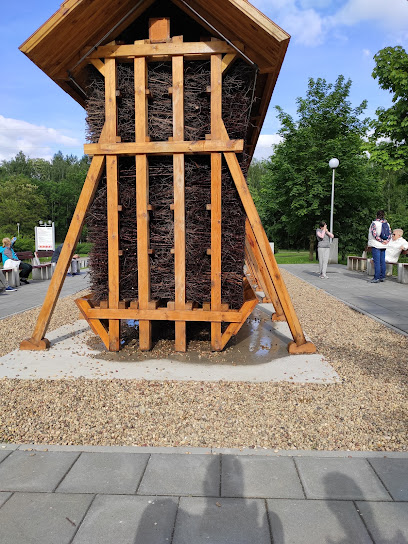
Fontanna Dziewczynka z gołębiami
Discover the serene beauty of the Fountain of the Girl with Doves in Częstochowa, a charming spot rich in art and tranquility.
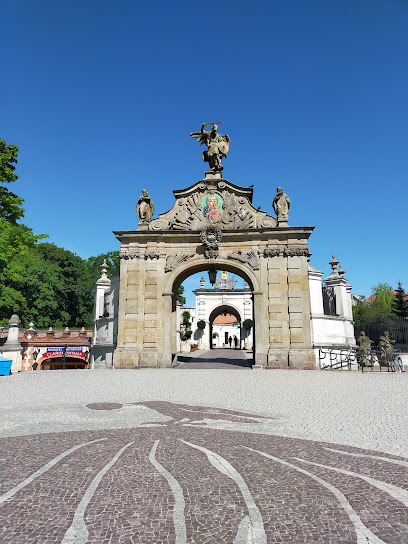
Essential places to dine
Gospoda Złoty Garniec
Discover Gospoda Złoty Garniec in Częstochowa for an unforgettable taste of traditional Polish cuisine in a family-friendly atmosphere.
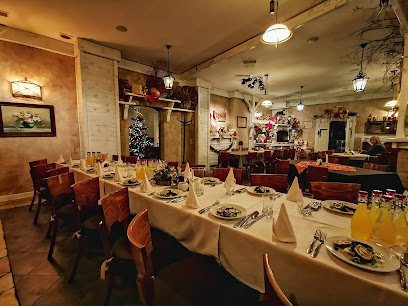
Topollino
Experience authentic Polish flavors at Topollino in Częstochowa – where every meal tells a story.
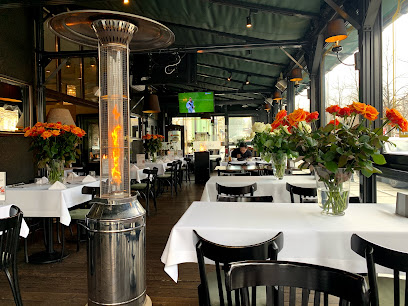
Gospoda Kwaśnica
Experience authentic Polish cuisine at Gospoda Kwaśnica in Częstochowa – where tradition meets flavor in every bite.
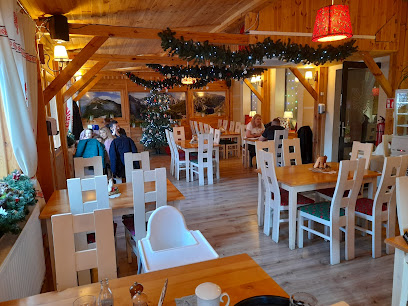
Cafe & Restaurant Dobry Rok
Discover Café & Restaurant Dobry Rok in Częstochowa: where family-friendly dining meets exquisite Italian and Polish cuisine.
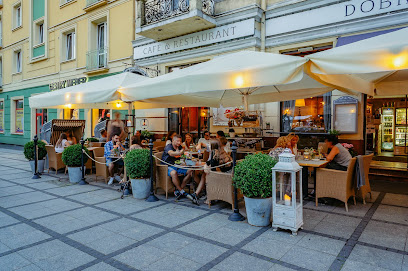
Pireus
Experience authentic Greek cuisine at Pireus Restaurant in Częstochowa—where Mediterranean flavors meet warm hospitality.
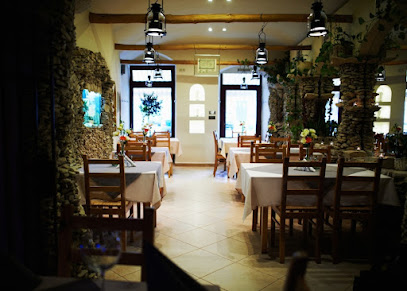
Dom Pizzy i Wina
Experience authentic Italian flavors at Dom Pizzy i Wina in Częstochowa—delicious pizzas and exquisite wines await!
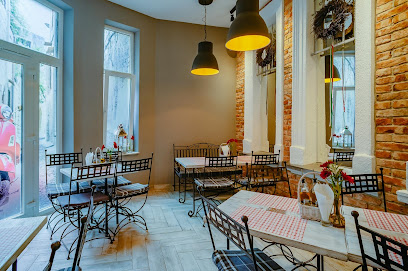
Cafe Belg
Discover Café Belg in Częstochowa – where culinary tradition meets modern taste in a cozy setting perfect for all travelers.
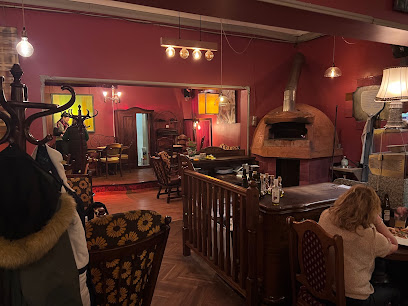
U Braci
Experience authentic Polish cuisine at U Braci in Częstochowa – where tradition meets modern dining excellence.
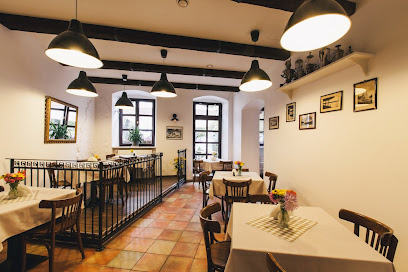
La Vita Da Re
Discover the essence of Italy with mouthwatering pizzas and authentic dishes at La Vita Da Re in Częstochowa.
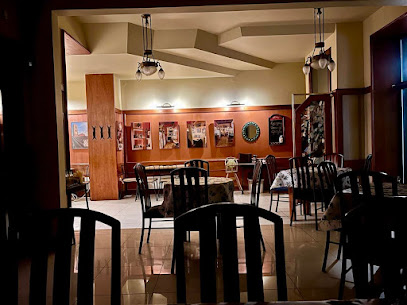
Restauracja Ecru
Discover authentic flavors at Restauracja Ecru in Częstochowa - where traditional meets contemporary in a cozy dining experience.
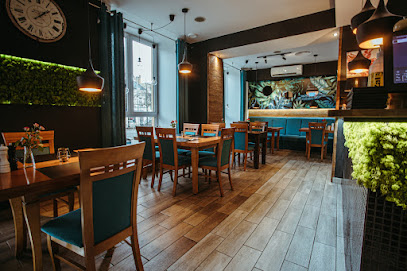
PierożeQ
Experience authentic Polish cuisine at PierożeQ in Częstochowa - home of the best pierogi and warm hospitality.
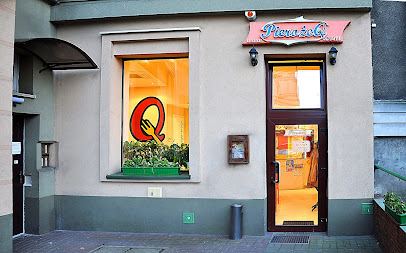
POPAS - Restauracja, przyjęcia i imprezy zorganizowane Częstochowa
Discover authentic Polish cuisine at POPAS in Częstochowa - a family-friendly restaurant offering catering services for all occasions.
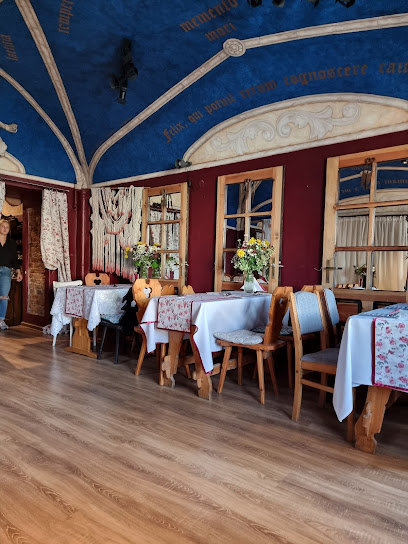
Pizzeria Felicita
Discover authentic Italian flavors at Pizzeria Felicita in Częstochowa—perfect for dine-in or takeaway!
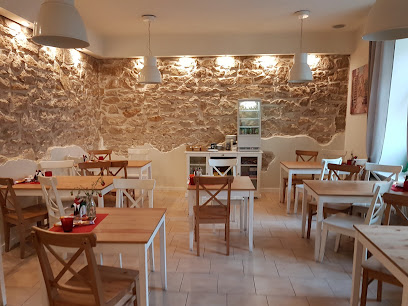
Yem Tu oriental food
Discover authentic Pan Asian cuisine at Yem Tu in Częstochowa—where every dish tells a story of flavor and tradition.
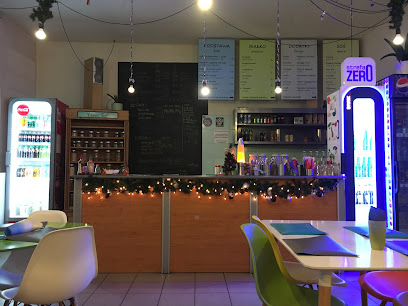
Hattori Hanzo
Experience authentic Japanese cuisine at Hattori Hanzo - the ultimate sushi destination in Częstochowa.
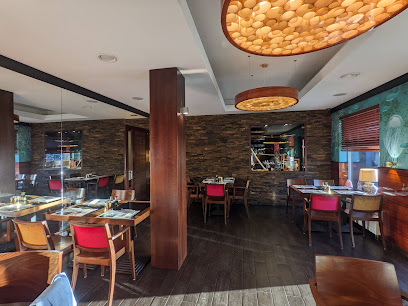
Markets, malls and hidden boutiques
Galeria Jurajska
Galeria Jurajska: Your ultimate shopping experience in Częstochowa, combining fashion, food, and fun under one roof.
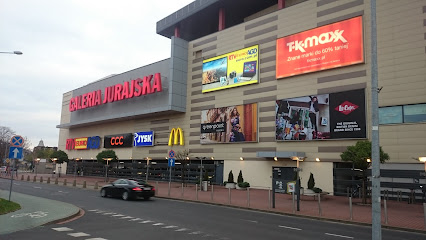
M1 Shopping Center
Discover the ultimate shopping experience at M1 Shopping Center in Częstochowa, where retail, dining, and entertainment converge.
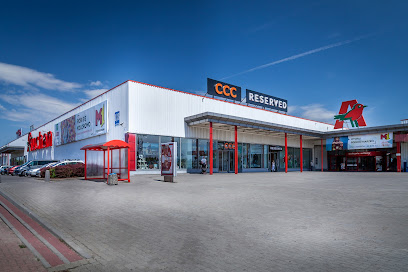
Flying Tiger Copenhagen
Explore Flying Tiger Copenhagen, a whimsical gift shop in Częstochowa, filled with unique finds for souvenirs and home decor at great prices.
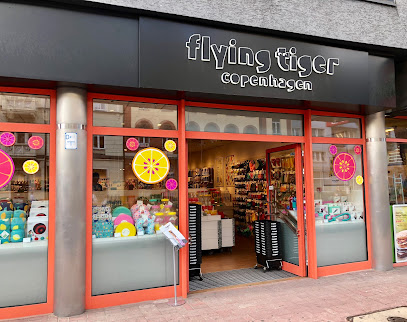
Pepco
Explore Pepco in Częstochowa for affordable fashion, children's clothing, and toys in a vibrant shopping atmosphere.
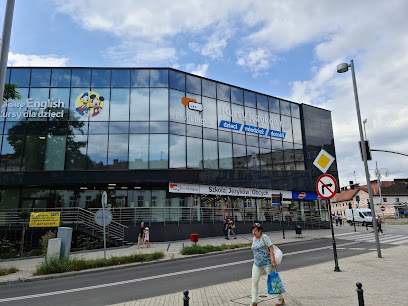
Centrum Handlowe
Explore Centrum Handlowe, a vibrant shopping mall in Częstochowa, offering a variety of shops, dining, and entertainment options for every visitor.
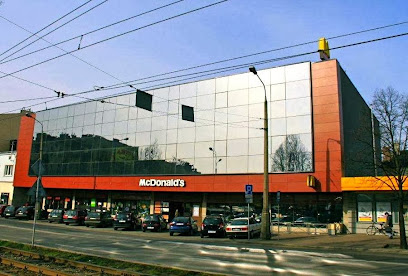
Lilou
Explore Lilou in Częstochowa for exquisite handcrafted jewelry and a personalized shopping experience, capturing the essence of Polish craftsmanship.
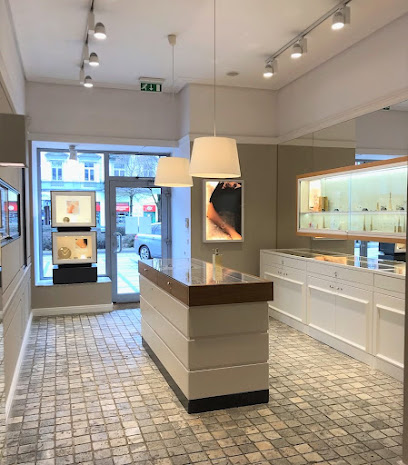
Klasyk Shop
Discover trendy youth fashion at Klasyk Shop in Częstochowa, where style meets affordability in a vibrant shopping atmosphere.
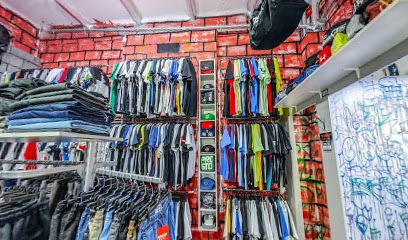
ChillOut-Shop
Shop at ChillOut-Shop in Częstochowa for stylish men's, women's, and sportswear – a must-visit for fashion enthusiasts.
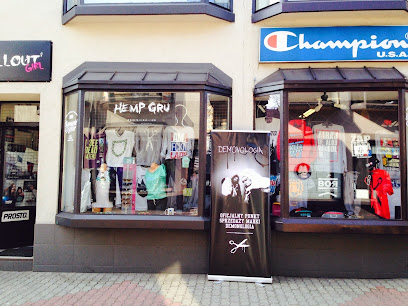
Retro Shop
Explore Retro Shop in Częstochowa for a unique shopping experience filled with vintage fashion treasures.
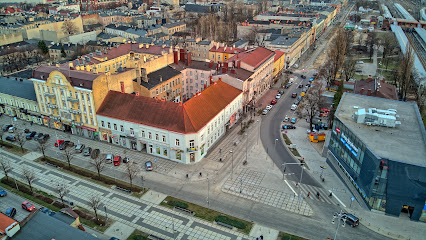
Art Decora
Explore Art Decora in Częstochowa for an exquisite selection of home goods, chinaware, and captivating art pieces that inspire creativity.
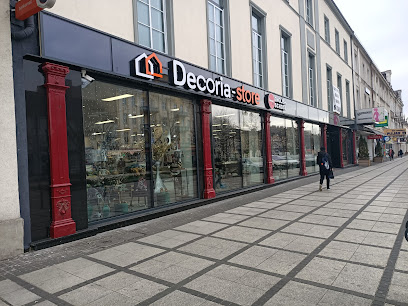
Bisi Boutique
Bisi Boutique in Częstochowa offers a unique selection of contemporary clothing, perfect for tourists seeking stylish and local fashion finds.
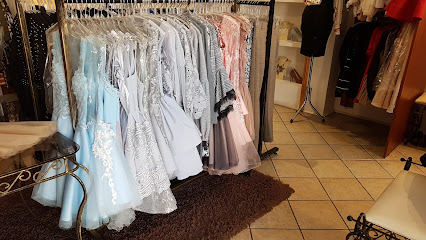
Deni ClerMilano
Discover the essence of modern fashion at Deni Cler in Częstochowa, where style meets quality in a chic clothing haven.
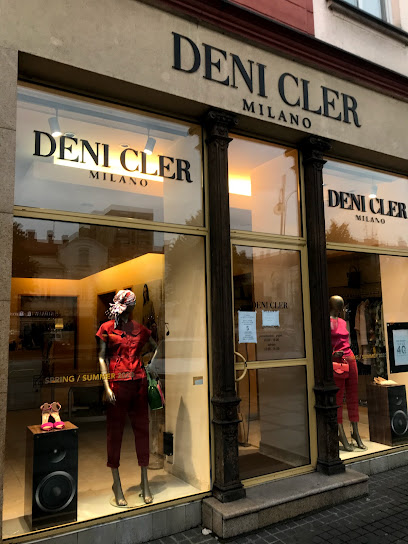
by Clödie boutique
Explore the chic and contemporary fashion offerings at by Clödie boutique in Częstochowa, where style meets quality and uniqueness.
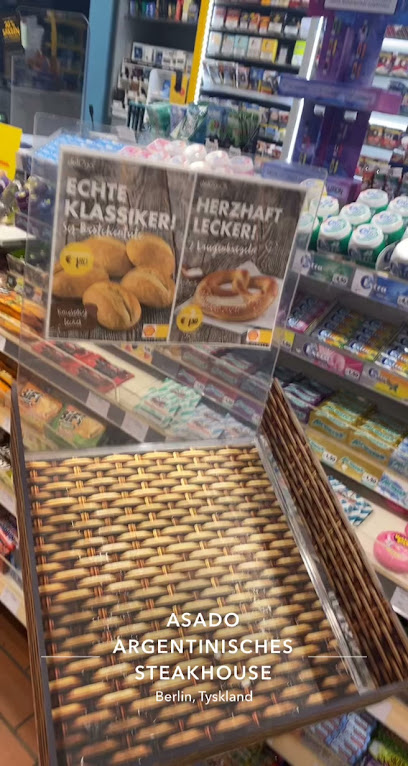
To tu
Discover unique Polish treasures at To tu, a charming novelty store in Częstochowa, filled with quirky gifts and local craftsmanship.
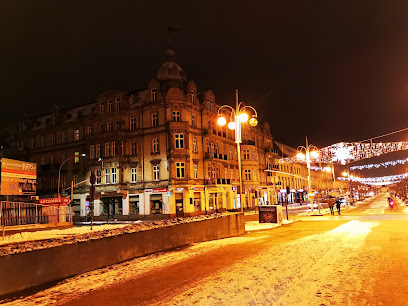
Moda Italiana Olga e Roberto
Explore Moda Italiana Olga e Roberto for exquisite clothing, lingerie, and shoes in the heart of Częstochowa.
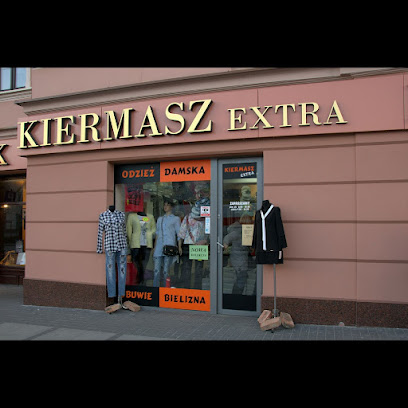
Essential bars & hidden hideouts
Wall Street Burger Sport Bar
Indulge in gourmet burgers and a lively atmosphere at Wall Street Burger Sport Bar, Częstochowa's top destination for food lovers.
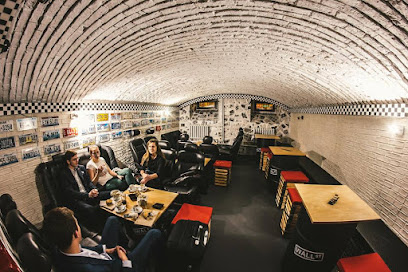
Piwiarnia Częstochowa
Experience the vibrant atmosphere of Piwiarnia Częstochowa, where local brews and hearty meals meet lively entertainment in the heart of Częstochowa.
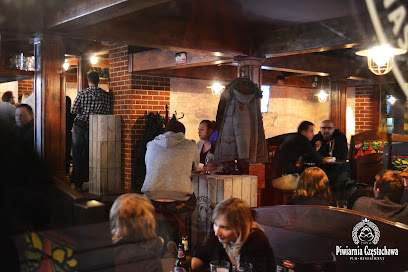
Pub Lucky Saloon
Discover the lively atmosphere of Pub Lucky Saloon in Częstochowa, where craft beers and local charm blend seamlessly for an unforgettable experience.
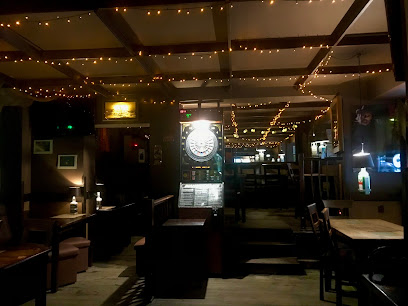
Piwiarnia w Alejach
Experience the heart of Częstochowa at Piwiarnia w Alejach, where local craft beers and vibrant ambiance create unforgettable moments.
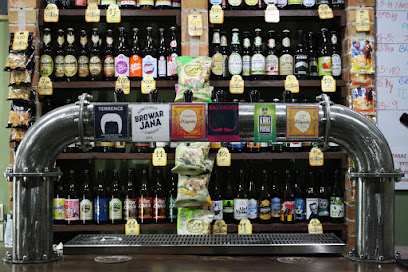
Ministerstwo Śledzia i Wódki
Discover the flavors of Poland at Ministerstwo Śledzia i Wódki, a charming gastropub in Częstochowa, renowned for its herring and vast vodka selection.
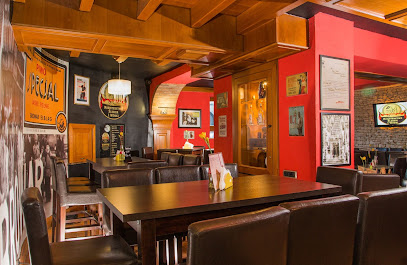
RED PUB
Enjoy the best of Częstochowa nightlife at RED PUB, where delicious food meets vibrant entertainment in a lively pub atmosphere.
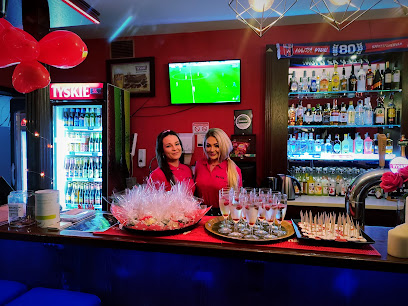
Bar Promenada
Experience the delightful fusion of small plates and dart games at Bar Promenada, a top culinary spot along Częstochowa's scenic promenade.
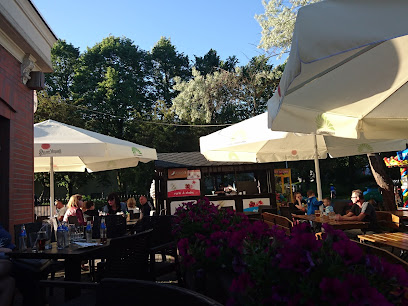
RESTO & PUB Szafa Gra
Discover the vibrant atmosphere and delicious offerings at RESTO & PUB Szafa Gra in Częstochowa, where culinary delights meet local culture.
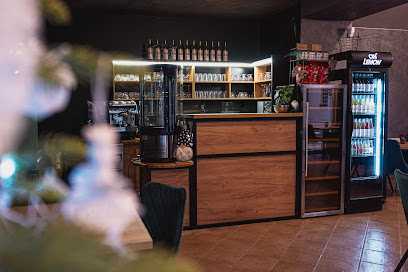
Lomobar
Experience the vibrant atmosphere of Lomobar, a premier brewpub in Częstochowa serving a delightful selection of craft beers and local brews.
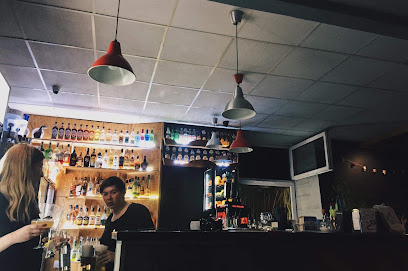
American Pub
Experience the vibrant atmosphere and delicious American cuisine at the American Pub in Częstochowa, a must-visit for food lovers.
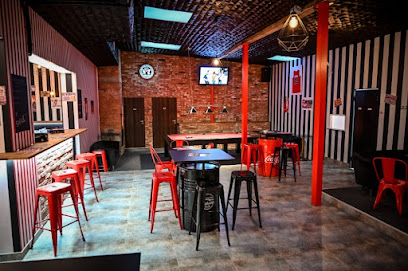
Micro KLIMAT - Bar
Discover the lively atmosphere and diverse drink selection at Micro KLIMAT - Bar, a must-visit spot in Częstochowa for travelers seeking local flavor.
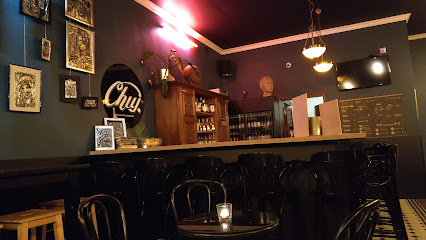
Dekadencja
Discover Częstochowa’s vibrant brewpub scene at Dekadencja, offering craft beers and delicious bites in a cozy atmosphere.
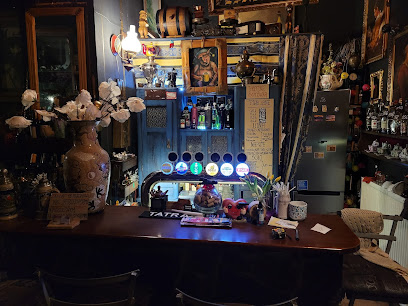
Pub Tawerna Port
Discover the heart of Częstochowa at Pub Tawerna Port, where authentic Polish hospitality meets a vibrant atmosphere.
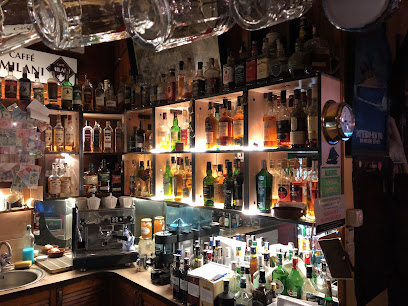
Alchemik
Experience Częstochowa's culinary delight at Alchemik, where delicious food and a cozy atmosphere come together for an unforgettable dining experience.
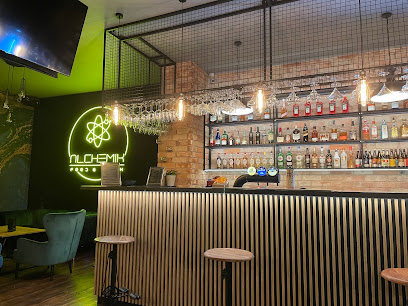
Claramontana Bar
Discover the cozy ambiance of Claramontana Bar in Częstochowa, where delicious drinks meet a warm, inviting atmosphere.
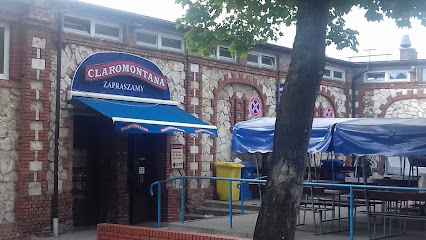
Local Phrases
-
- HelloCześć
[cheshch] - GoodbyeDo widzenia
[doh veedzenyah] - YesTak
[tahk] - NoNie
[nyeh] - Please/You're welcomeProszę
[prosheh] - Thank youDziękuję
[jenkoo-yeh] - Excuse me/SorryPrzepraszam
[psheh-prah-shahm] - How are you?Jak się masz?
[yahk shay mahsh] - Fine. And you?Dobrze. A ty?
[doh-bzheh. ah tih] - Do you speak English?Czy mówisz po angielsku?
[chi moo-veesh poh ahng-yehl-skoo] - I don't understandNie rozumiem
[nyeh roh-zoo-myem]
- HelloCześć
-
- I'd like to see the menu, pleaseChciałbym zobaczyć menu, proszę
[hchah-wbim zoh-bah-chich menoo, proh-sheh] - I don't eat meatNie jem mięsa
[nyeh yem myen-sah] - Cheers!Na zdrowie!
[nah zdroh-vee-eh] - I would like to pay, pleaseChciałbym zapłacić, proszę
[hchah-wbim zah-plah-cheech, proh-sheh]
- I'd like to see the menu, pleaseChciałbym zobaczyć menu, proszę
-
- Help!Pomocy!
[poh-moh-tsih] - Go away!Idź sobie!
[eedzh soh-byeh] - Call the Police!Zadzwoń po policję!
[zahd-voon poh poh-leets-yeh] - Call a doctor!Zadzwoń po lekarza!
[zahd-voon poh leh-kah-zah] - I'm lostZgubiłem się
[zgoo-bye-wem shyeh] - I'm illJestem chory
[yeh-stem hoh-rih]
- Help!Pomocy!
-
- I'd like to buy...Chciałbym kupić...
[hchah-wbim koo-peech] - I'm just lookingTylko się rozglądam
[tih-koh shyeh rohz-gwah-dahm] - How much is it?Ile to kosztuje?
[ee-leh toh kohs-too-yeh] - That's too expensiveTo jest za drogie
[toh yest zah droh-gyeh] - Can you lower the price?Czy możesz obniżyć cenę?
[chi mo-zhes ob-nee-zhoo-ch chen-eh]
- I'd like to buy...Chciałbym kupić...
-
- What time is it?Która jest godzina?
[ktoh-rah yest goh-dzee-nah] - It's one o'clockJest pierwsza
[yest pyehr-vshah] - Half past (10)Pół do dziesiątej
[poo doh dzhe-sho-neh] - MorningRano
[rah-noh] - AfternoonPopołudnie
[poh-po-woo-dnyeh] - EveningWieczór
[vyeh-choor] - YesterdayWczoraj
[vchoh-rye] - TodayDziś
[jeesh] - TomorrowJutro
[yoo-troh] - 1Jeden
[yeh-den] - 2Dwa
[dvah] - 3Trzy
[tshih] - 4Cztery
[ch-teh-rih] - 5Pięć
[pyehnch] - 6Sześć
[sheshch] - 7Siedem
[shyeh-dem] - 8Osiem
[oh-shyem] - 9Dziewięć
[dzyeh-vee-ench] - 10Dziesięć
[dzyeh-shyehnch]
- What time is it?Która jest godzina?
-
- Where's a/the...?Gdzie jest...
[gdyeh yest] - What's the address?Jaki jest adres?
[yah-ki yest ah-dresh] - Can you show me (on the map)?Czy możesz mi pokazać (na mapie)?
[chi mo-zhes mee poh-kah-zahch (nah mah-pee-eh)] - When's the next (bus)?Kiedy jest następny (autobus)?
[kyeh-dih yest nah-stehp-nih (ou-toh-boos)] - A ticket (to ....)Bilet (do ....)
[byeh-let (doh)]
- Where's a/the...?Gdzie jest...
History of Czestochowa
-
Czestochowa, a city in southern Poland, dates back to the late 11th century. The first historical mention of the settlement was in 1220. The city’s strategic location on the Warta River made it a significant trading hub throughout the Middle Ages.
-
Established in 1382 by Pauline monks from Hungary, the Jasna Góra Monastery is the spiritual heart of Czestochowa. It is home to the revered icon of the Black Madonna, which attracts millions of pilgrims annually. The monastery has played a crucial role in the religious and cultural life of Poland.
-
During the Second Northern War in 1655, the Swedish army laid siege to the Jasna Góra Monastery. Despite being heavily outnumbered, the monks and local defenders successfully repelled the attack. This event bolstered Polish morale and is celebrated as a symbol of national resistance and faith.
-
The 19th century saw Czestochowa transform into an industrial center. The construction of the Warsaw-Vienna railway in 1846 spurred economic growth. Factories, ironworks, and textile mills sprang up, leading to a population boom and urban development.
-
Czestochowa endured significant hardships during World War II. The city was occupied by Nazi Germany in 1939. The local Jewish community, which had been thriving, faced horrific persecution, culminating in the establishment of the Czestochowa Ghetto in 1941. The city was liberated by the Soviet Red Army in January 1945.
-
After World War II, Czestochowa underwent extensive reconstruction. The communist government of Poland invested in rebuilding the city's infrastructure and expanding its industrial base. The Jasna Góra Monastery continued to be a focal point of religious and national identity, especially during the Solidarity movement of the 1980s.
-
Today, Czestochowa is a vibrant city blending historical heritage with modern amenities. It remains a major pilgrimage site, hosting the annual Feast of the Assumption, which draws visitors from around the world. The city boasts numerous cultural attractions, including museums, theaters, and art galleries, reflecting its rich and diverse history.
Czestochowa Essentials
-
Czestochowa is located in southern Poland, approximately 120 kilometers north of Krakow and 220 kilometers southwest of Warsaw. The city is well-connected by various modes of transport. The nearest international airports are Krakow John Paul II International Airport and Katowice International Airport, both of which offer direct bus and train connections to Czestochowa. Trains are a convenient option, with regular services from major Polish cities like Warsaw, Krakow, and Wroclaw. Additionally, buses and private car hires are available for those who prefer road travel.
-
Czestochowa has a robust public transportation system comprising buses and trams that make it easy to navigate the city. Tickets can be purchased from kiosks, ticket machines, or directly from the driver. Taxis are readily available and can be hailed on the street or booked via mobile apps. For visitors who prefer to drive, car rental services are also available. Biking is another viable option, with several bike rental stations and dedicated bike paths throughout the city.
-
The official currency in Poland is the Polish Zloty (PLN). Credit and debit cards are widely accepted in most hotels, restaurants, and shops. However, it's advisable to carry some cash for smaller establishments and local markets. ATMs are ubiquitous in Czestochowa, and currency exchange offices (kantors) offer competitive rates for exchanging foreign currency.
-
Czestochowa is generally a safe city for tourists. However, it is wise to take standard precautions such as avoiding poorly lit areas at night and keeping an eye on personal belongings in crowded places. Areas around the main train station can occasionally attract petty crime, so be particularly vigilant there. Always use reputable taxi services and avoid accepting unsolicited offers for transport.
-
In case of emergency, dial 112 for immediate assistance. This number connects you to police, medical, and fire services. Czestochowa has several hospitals and clinics that provide medical care. Pharmacies are also widely available for minor health issues. It's recommended to have travel insurance that covers medical emergencies. For diplomatic assistance, visitors can contact their respective embassies or consulates in Poland.
-
Fashion: Do dress modestly, especially when visiting religious sites like the Jasna Góra Monastery. Avoid overly revealing clothing. Religion: Do respect religious customs. Remove hats and speak in hushed tones when inside churches. Public Transport: Do validate your ticket upon boarding and offer your seat to elderly passengers. Don't eat or drink on public transport. Greetings: Do greet people with a handshake while maintaining eye contact. Eating & Drinking: Do try local dishes and be polite when offered food. Don't leave a tip on the table; instead, hand it directly to the waiter.
-
To experience Czestochowa like a local, take a stroll through the Jasna Góra Monastery and attend a Mass, even if you are not Catholic, to appreciate the local culture. Visit local markets such as Targowisko Tysiaclecia for fresh produce and handmade crafts. Engage with locals in cafes and eateries to learn about the city's history and traditions. Don't miss out on trying local delicacies like 'pierogi' and 'kielbasa'. For a unique experience, explore the city's parks and green spaces, such as Park Staszica, which is a favorite among locals.
Trending Landmark in Czestochowa
-
Jasna Góra
-
Castle in Olsztyn
-
Park im. Staszica w Częstochowie
-
Park im. Stanisława Staszica w Częstochowie
-
Museum of the Production of Matches
-
Muzeum Częstochowskie - Ratusz Miejski
-
Miejska Galeria Sztuki
-
Kamieniołomy na Złotej Górze
-
Galeria Dobrej Sztuki - Muzeum Częstochowskie
-
Muzeum Górnictwa Rud Żelaza w Częstochowie - Muzeum Częstochowskie
-
Skała Balika
-
Railway History Museum in Czestochowa
-
Złota góra
-
Kule Cemetery in Częstochowa
-
Skarbiec
Nearby Cities to Czestochowa
-
Things To Do in Gliwice
-
Things To Do in Opole
-
Things To Do in Krakow
-
Things To Do in Kielce
-
Things To Do in Lodz
-
Things To Do in Bielsko-Biala
-
Things To Do in Ostrava
-
Things To Do in Wroclaw
-
Things To Do in Radom
-
Things To Do in Tarnow
-
Things To Do in Zakopane
-
Things To Do in Žilina
-
Things To Do in Olomouc
-
Things To Do in Martin
-
Things To Do in Warsaw













